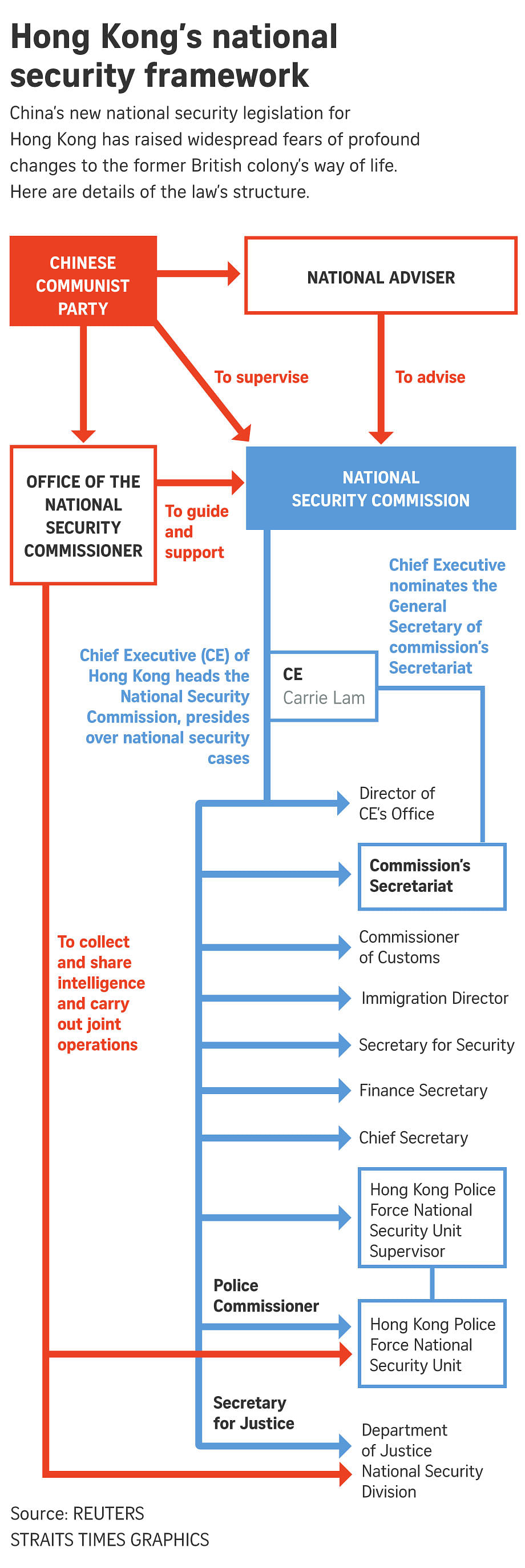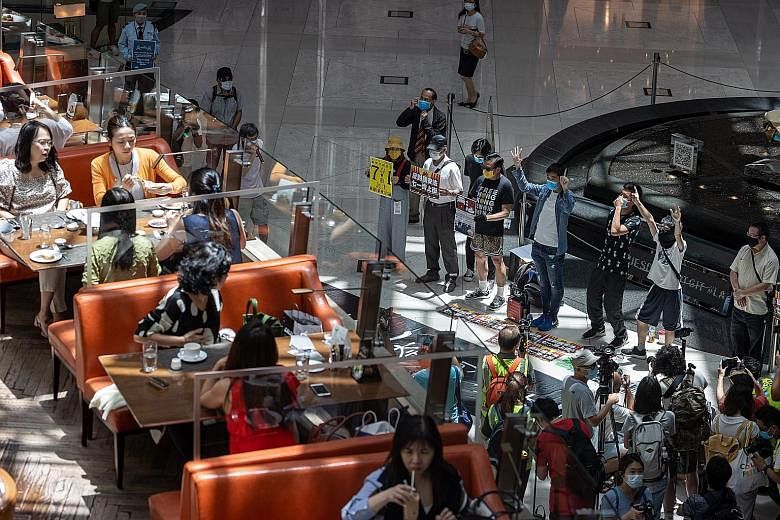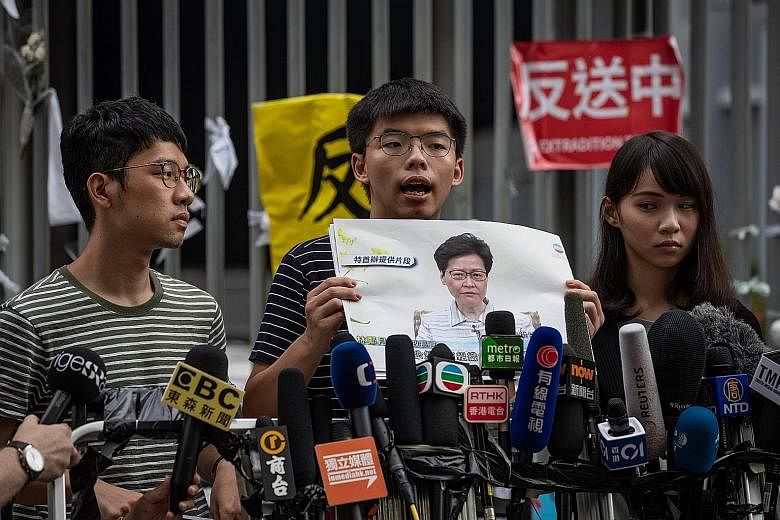Several prominent Hong Kong activists quit or disbanded their groups yesterday, after China's Parliament approved a new national security law that many in the city fear will erode its freedoms and lead to a clampdown on dissent.
The law, which was drafted in a matter of weeks and bypassed Hong Kong's Legislative Council (Legco), bans subversion and secession, among other things.
The legislation was drafted in response to months of often violent pro-democracy protests in the territory last year. It was passed in Beijing on the eve of the anniversary of Hong Kong's return to Chinese rule, a day often marked in the past by protest marches in the city.
A majority of Hong Kongers oppose the legislation, a poll done for Reuters last month showed.
Demosisto's former secretary-general Joshua Wong, and two co-founders of the group, Mr Nathan Law and Ms Agnes Chow, started the ball rolling among the activists by announcing their resignations in separate social media posts in the morning.
Without going into details, Mr Wong said in a Facebook post: "The will of Hong Kong will not be frozen by the national security law or any evil law."
He added that he would "continue to stay in my home, Hong Kong, until they silence me".
The party later announced in a separate Facebook post that with the exits of its key members, it would disband.
It urged people to fight for Hong Kong in their personal capacity.
Mr Wong and Mr Law, among those well known in the city for advocating democracy and universal suffrage, met United States politicians and Trump administration officials, including Secretary of State Mike Pompeo, last year.
The pro-independence groups Hong Kong National Front and Studentlocalism also dissolved their Hong Kong operations, with the former saying its work would continue in Taiwan and Britain.

"That said, this does not mean we will stop. Our work here will be taken over by the overseas branches, and we will fight for Hong Kong's independence from overseas," the Hong Kong National Front wrote on Facebook.
Chief Executive Carrie Lam, in a video message to the United Nations Human Rights Council in Geneva yesterday, urged the international community to "respect our country's right to safeguard national security".
A top adviser to Mrs Lam has said that the security law would not be used if residents avoided crossing certain "red lines".
"It really is to warn people: Do not cross those red lines, you cannot ask for Hong Kong independence, and we do not tolerate terrorist acts like what happened last year during the social unrest," Mr Bernard Chan, a convener of the territory's advisory Executive Council, said in an interview with Bloomberg Television on Monday.
To encourage compliance with the new legislation, the city's former chief executive Leung Chun Ying yesterday announced that a fund was offering a reward of up to HK$1 million (S$180,000) to anyone who reports on offenders or provides information on "anyone who has fled the city".
The 803 Fund, which offers rewards to those who provide information that leads to the arrest and prosecution of anti-government protesters, is linked to a website set up last year by Mr Leung, a vice-chairman of the Chinese People's Political Consultative Conference.
As news surrounding the law trickled in yesterday, a small protest against it took place in a mall in the city's Central area at lunchtime, while a similar incident was reported in a Kwun Tong mall in the evening.
The stage is set for possible clashes today as pro-democracy activists urged the public to march in the afternoon from Causeway Bay to express their opposition to the law.



